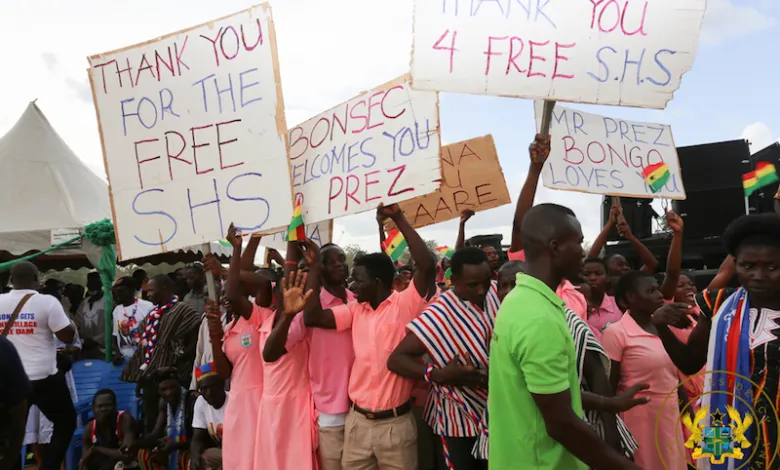News
Free SHS Was a Visionary Idea, Poorly Executed : Gbande

Published
2 months agoon
By
M N Ridwan
Deputy General Secretary of the National Democratic Congress (NDC), Mustapha Gbande, has described the Free Senior High School (Free SHS) policy as a missed opportunity to drive meaningful social change in Ghana, citing poor implementation and political motivations.
Speaking on Starr Chart with Bola Ray on Friday, April 11, Gbande acknowledged the original vision behind Free SHS, admitting that it could have greatly benefitted people like himself who struggled financially through school. However, he believes the way the policy was rolled out failed to deliver the impact it promised.
“I had to struggle to pay my school fees. Free SHS would have helped people like me,” he said. “But they fed the students poorly, didn’t invest in infrastructure, and teachers weren’t motivated.”
Gbande argued that instead of being used as a sincere tool for social transformation, the policy became more of a political weapon.
“It was a good vision, but the execution was politically motivated. Free SHS was a good policy but poorly executed. They used it as a political tool, not a social intervention,” he added.
Since its inception in 2017, the free SHS policy has expanded access to secondary education in Ghana, with thousands of students now attending school without paying tuition or boarding fees.
While the initiative has been widely praised for easing the financial burden on families, critics have long pointed out issues such as overcrowded classrooms, under-resourced schools, and teacher fatigue.
Gbande’s comments come at a time when public debate about the quality and sustainability of free SHS is intensifying. Many stakeholders in education, including teachers, parents, and civil society groups, have called for a policy review to improve its long-term effectiveness.
According to Gbande, the government failed to prepare adequately for the increased intake of students, resulting in widespread infrastructure challenges and strain on teaching staff.
He stressed that for policies like Free SHS to truly transform society, they must be implemented with integrity, foresight, and a strong commitment to quality—not just access.
“There was no proper planning. It was rushed. A visionary policy needs a visionary execution. That’s where they failed,” Gbande said.
As the conversation around free SHS continues to evolve, many will be watching closely to see whether future reforms will address these concerns or simply repeat past mistakes.